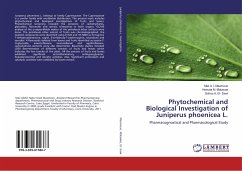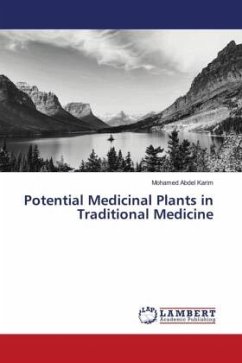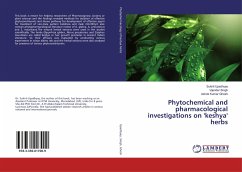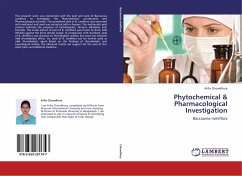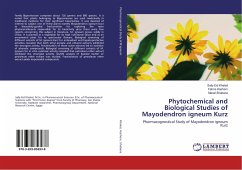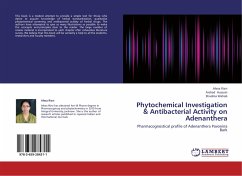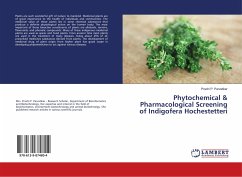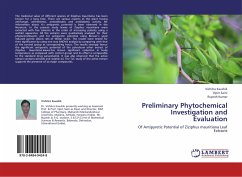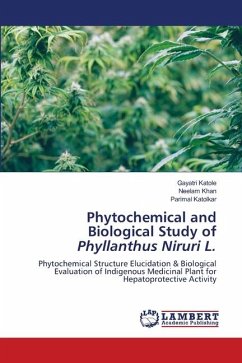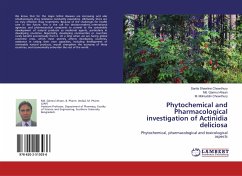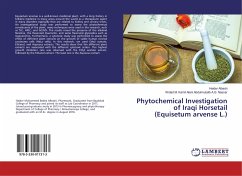
Phytochemical Investigation of Iraqi Horsetail (Equisetum arvense L.)
Versandkostenfrei!
Versandfertig in 6-10 Tagen
22,99 €
inkl. MwSt.

PAYBACK Punkte
11 °P sammeln!
Equisetum arvense is a well-known medicinal plant, with a long history in folklore medicine in many areas around the world as a therapeutic agent in many disorders especially that are related to kidney and urinary tracts. An investigational study was performed to assess the phytochemical constituents of the plant, many techniques were used in this research, such as TLC, HPLC, and GC/MS. The results reveal the presence of the alkaloid Nicotine, the flavonoid Quercetin, and some flavonoid glycosides such as Isoquercitrin. Furthermore, a cytotoxic study was performed to assess the effect of diffe...
Equisetum arvense is a well-known medicinal plant, with a long history in folklore medicine in many areas around the world as a therapeutic agent in many disorders especially that are related to kidney and urinary tracts. An investigational study was performed to assess the phytochemical constituents of the plant, many techniques were used in this research, such as TLC, HPLC, and GC/MS. The results reveal the presence of the alkaloid Nicotine, the flavonoid Quercetin, and some flavonoid glycosides such as Isoquercitrin. Furthermore, a cytotoxic study was performed to assess the effect of different plant extracts on the growth of viable human cervical carcinoma cells (HeLa cells), In this research, we used Ethyl acetate, Ethanol, and Aqueous extracts. The results show that the different plant extracts are associated with the different cytotoxic action. The highest growth inhibition rate was observed with the Ethyl acetate extract, followed by the Ethanol extract. The least one is the Aqueous extract.



